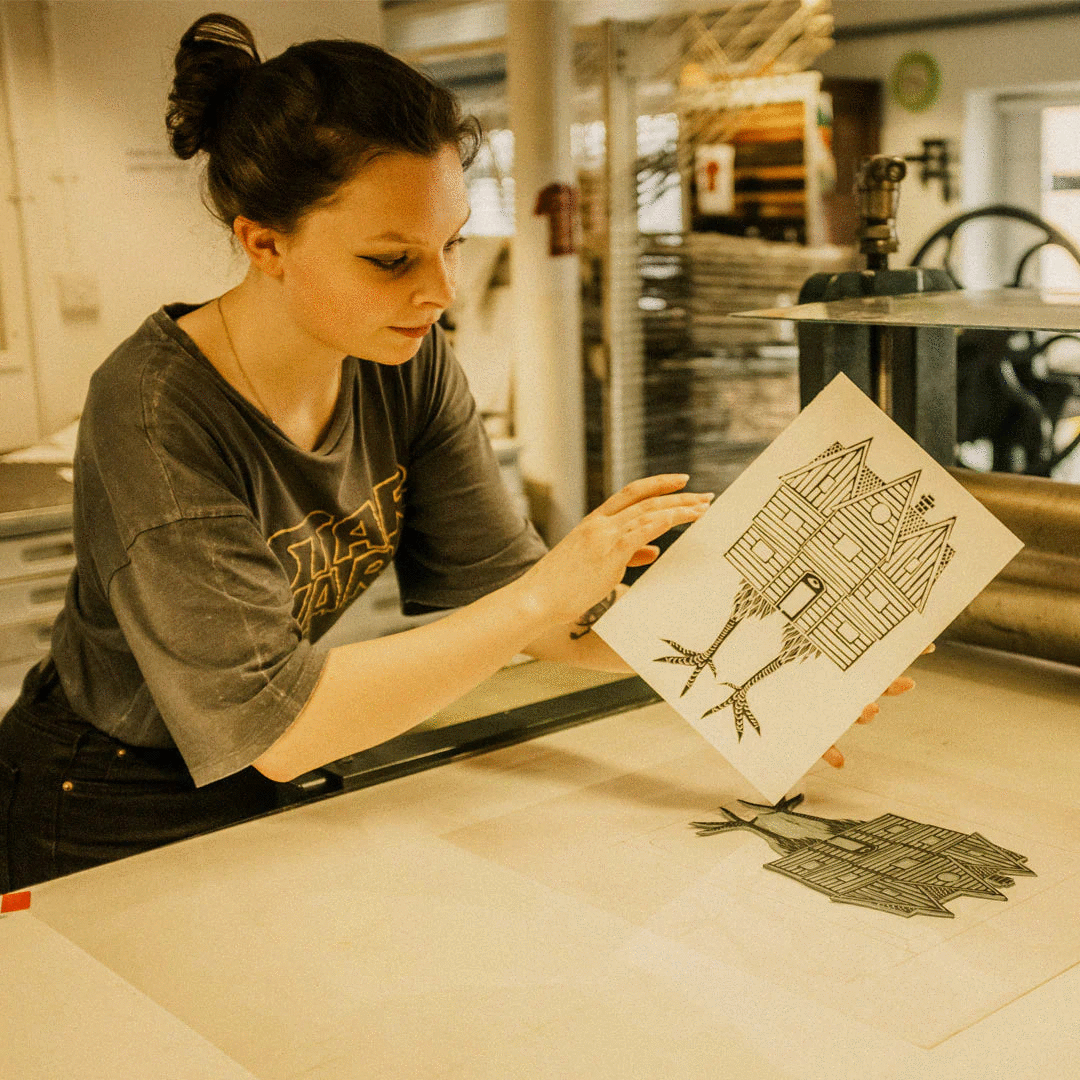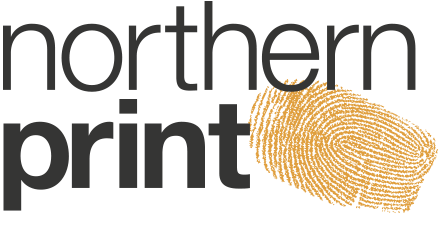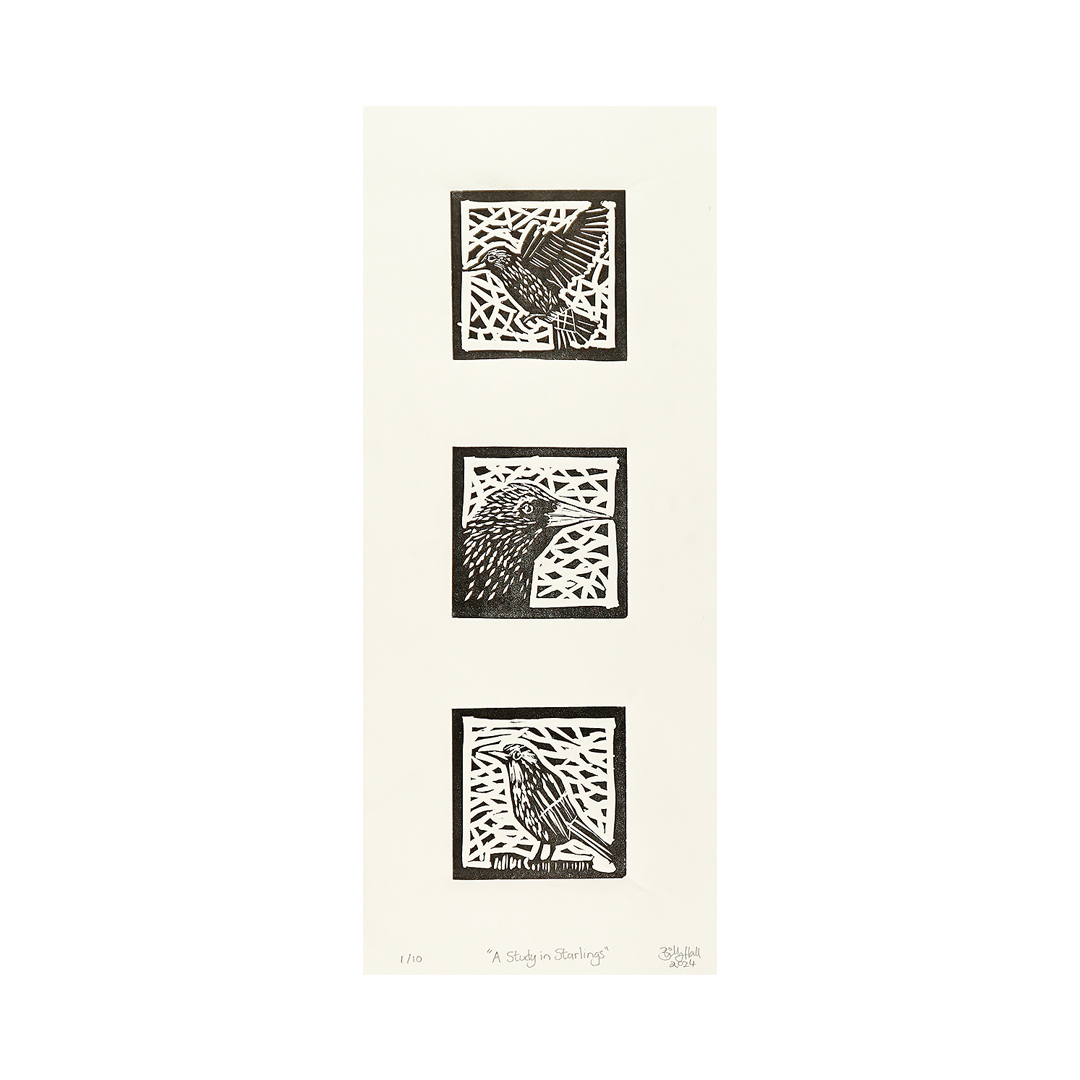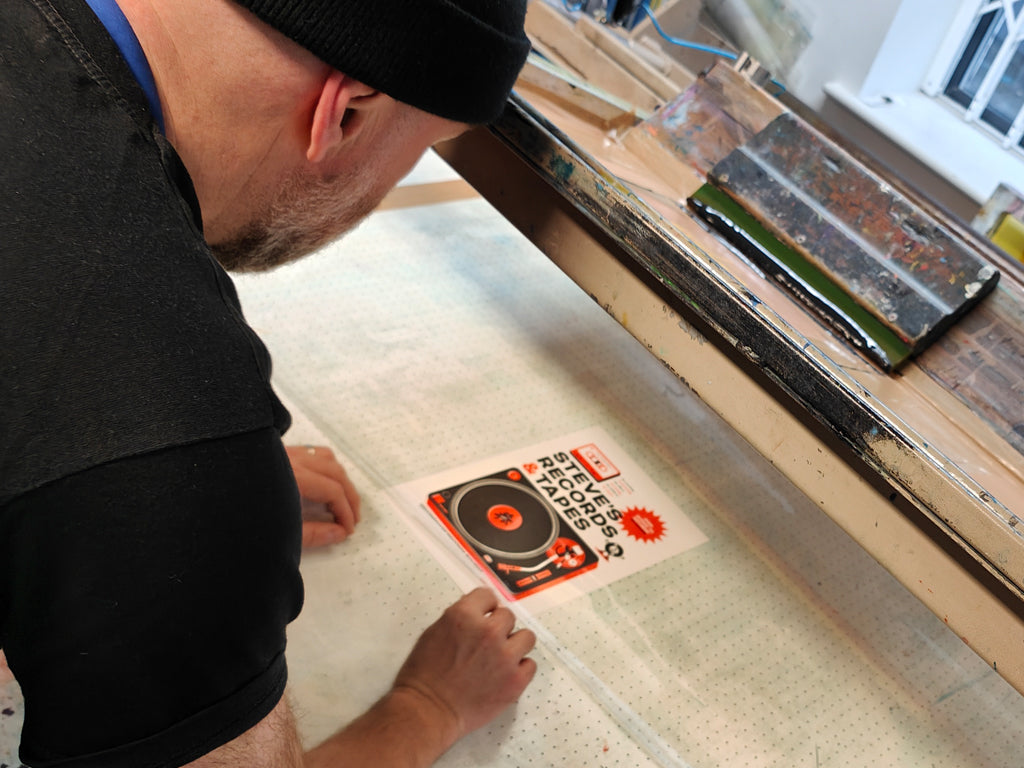A Study In Starlings
A Study In Starlings
Artist: Billy Hall
Medium: Linocut
Dimensions: Paper Size 38 x 15.5cm / Image Size 7.5 x 7.5cm (3 images)
Edition: 1 /10
Postage & Packing
Postage & Packing
£9 UK postage & packing in secure postal tube.
By selecting this option, you confirm that you want to apply Gift Aid.
Couldn't load pickup availability
Share
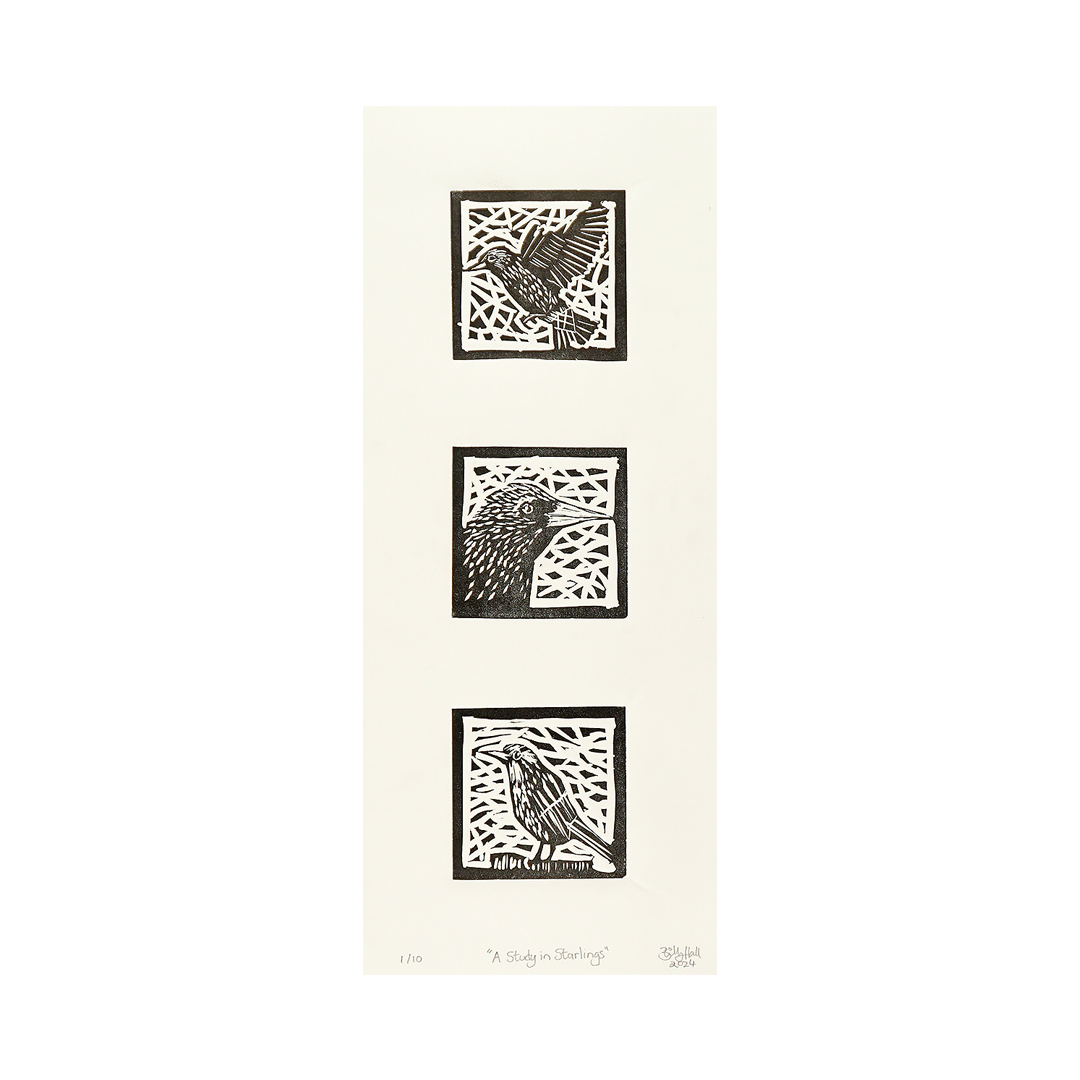
Information
-
About this print
Whilst researching the UK endangered red lists for mammals and birds, I was taken aback by the breadth of species but also how seemingly familiar and everyday some of the entries were. Hedgehogs, House Sparrows and my choice Starlings stood out in that aspect. In this year’s RSPB Big Garden Birdwatch, Starlings were the third most recorded bird and in recent months, I have seen large murmurations in Rising Sun Country Park and had a number trying to pinch my chips in Amble.
Despite their seeming commonality since the 1960’s there has been a large decline in breeding pairs with a 53% population decrease reported for the period 1995-2020 (British Trust For Ornithology). Starlings have distinctive spotted plumage and are real characters being social, fast, cheeky and noisy. I’ve tried to capture some of those features in my triptych of linocuts. -
Endless Forms, Most Beautiful
Read MoreA new bestiary and herbarium for at risk species by artists from Northern Print.
“Endless Forms Most Beautiful” is made possible with The National Lottery Heritage Fund. Thanks to National Lottery players, we have been able to support visits, new printmaking and school’s programme for this project.
Northern Print artists bring together traditional printmaking and the natural world with a series of new prints highlighting the diversity of species that are categorised as ‘at risk’.
The ‘endless forms’ include marine life; plants; birds; insects and mammals with many familiar and much-loved species as well as less known and intriguing creatures that have captured the imagination and hearts of Northern Print’s artists.
This exhibition of 45 new prints has been made following a series of visits to our region’s natural history collections and habitats and represents the tiniest tip of the iceberg of our natural world under threat.
The artwork includes a range of approaches and printmaking processes – including heritage craft skills also deemed at risk including letterpress and mould-made papers
